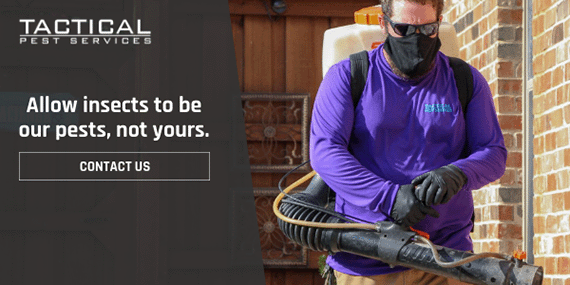“Good night, sleep tight, don’t let the bed bugs bite!” I am sure most people have heard this childhood nursery rhyme before, but bedbugs really are nothing to joke about. These small, reddish-brown parasitic insects are a growing pest problem all around the world. Since bedbugs survive solely on blood, finding them in your home is not a sign of dirtiness. People are just as likely to find them in immaculate homes and hotel rooms as in filthy ones. Although bedbugs aren’t known to spread disease, they can cause other public health and economic issues. Not to mention they are gross and make sleeping a very uncomfortable experience.
Signs of Bedbug Infestation
If you think you have a bedbug infestation, there are some clear signs to look out for. About the size of an apple seed, bedbugs hide in the crevices of beds, box springs, headboards, bed frames, and any other objects around a bed. Their flattened bodies make it possible for them to fit into tiny spaces, even a crack as small as the width of a credit card. Bedbugs do not have nests like ants or bees but tend to live in group hiding places. Bedbugs may enter your home undetected through luggage, clothing, used beds and couches, or other second-hand items. Wild animals (such as bats or birds) may also host bed bugs or related species and accidentally bring them into your home.
Perhaps the most obvious sign of bedbugs though is their routine of biting any exposed skin of sleeping humans and animals to feed on their blood. This feeding pattern leaves behind distinguishable red lesions about 2-5 millimeters in diameter. If you have a bedbug infestation in your home, this will more than likely be the first obvious indicator you need to call an exterminator.
What To Do If You Find Bedbugs
If you suspect the presence of bedbugs, quickly remove all bedding and check it carefully for signs of the bugs or their excrement. Take off the dust cover over the bottom of the box springs and examine the seams in the wood framing. Peel back the fabric where it is stapled to the wood frame. Also, check the area around the bed, including inside books, telephones or radios, the edge of the carpet, and even in electrical outlets. Check your closet because bedbugs can attach to clothing. If you are uncertain about signs of bedbugs, it’s best to call an exterminator, who will know what to look for.
You can try to remove bedbugs on your own, but this can be a challenging task without modern extermination technology. Getting rid of bedbugs begins with cleaning up the places where bedbugs live.
- Clean bedding, linens, curtains, and clothing in hot water and dry them on the highest dryer setting.
- Place stuffed animals, shoes, and other items that can’t be washed in the dryer and run on high for 30 minutes.
- Use a stiff brush to scrub mattress seams to remove bedbugs and their eggs before vacuuming.
- Vacuum your bed and surrounding area frequently. After vacuuming, immediately place the vacuum cleaner bag in a plastic bag and place it in a garbage can outdoors.
- If you are really attached to your mattress, you can encase it and the box springs with a tightly woven, zippered cover to keep bedbugs from entering or escaping. Bedbugs may live up to a year without feeding, so you’ll have to keep the cover on your mattress for at least a year to make sure all bugs in the mattress are dead.
- Repair cracks in plaster and glue down peeling wallpaper to get rid of places bedbugs can hide.
How To Remove Bedbugs Completely
If your mattress is infested, it’s probably not worth keeping. However, simply throwing away your mattress and getting a new one might not eradicate bedbugs completely. This is why it’s best to hire professional help because if you don’t take care to rid the rest of your home of bedbugs, they will infest your new mattress.
While cleaning up infested areas will be helpful in controlling bedbugs, getting rid of them completely usually requires chemical treatments. This is something that should be left to professionals since treating your bed and bedroom with insecticides can be very dangerous if not done properly. Prolonged exposure to amateur chemical treatment solutions, such as sleeping in the same space for up to eight hours a night, can be highly damaging to your health. Generally, it is safest and most effective to hire an experienced pest control professional for bedbug extermination. No matter what your pest control needs are, Tactical Pest Solutions are only a call away!


